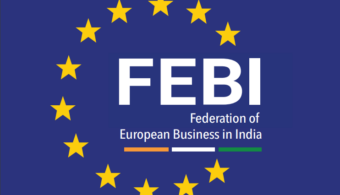Germany placed itself firmly at the forefront of Europe’s technological future on Tuesday, 18 November, as Chancellor Friedrich Merz and senior ministers convened European leaders, policymakers and industry heads in Berlin to press for greater digital sovereignty. The high-stakes Summit on European Digital Sovereignty comes at a crucial moment, with the EU preparing to ease key AI and data regulations in an effort to boost innovation.
The gathering underscored Berlin’s ambition to shape Europe’s digital transformation and to push the bloc toward more self-reliance in strategic technology sectors.
Chancellor Merz Calls for a More Assertive Europe in AI and Digital Infrastructure
Chancellor Merz urged Europe to reclaim control over critical digital systems, warning that the continent must set its own standards in emerging technologies. Greater sovereignty is needed “wherever it is achievable,” he said, stressing that Europe can no longer afford to be technologically dependent.
Chancellor Merz’s stance reflects growing unease in Berlin over Europe’s lag in artificial intelligence, cloud infrastructure and advanced computing.
Germany Warns Against Europe Remaining a Passive Tech “Customer”
Germany’s Digital Minister Karsten Wildberger, opening the summit, said Europe had remained “a customer for too long,” relying on imported technologies rather than building its own capabilities. This culture of excessive risk-aversion, he argued, has prevented the continent from competing at the global frontier.
With AI reshaping economies worldwide, such passivity would be “fatal” for Europe, Wildberger warned. He added that while Germany remains committed to data protection and civil rights, an overregulated environment has slowed down innovation and weakened Europe’s competitive position.
Berlin Pushes Collaborative Tech Projects With France and EU Partners
The Berlin summit — co-hosted with France — is expected to announce several cross-border initiatives in:
- Cloud and computing infrastructure
- Quantum technologies
- Defence and drone systems
- Healthcare data platforms
German officials said these joint investments would help Europe build secure digital infrastructure, particularly in cloud computing, where Amazon, Microsoft and Google currently dominate government and corporate markets.
A key focus is enabling Europe to store sensitive public-sector and industrial data on homegrown systems.
President Macron Backs Germany’s Drive for Independence
French President Emmanuel Macron, joining Chancellor Merz in Berlin, said Europe cannot allow itself to remain a technology client of Washington or Beijing. Europe must be able “to design and deliver its own solutions,” he said, aligning closely with Germany’s push for an autonomous digital strategy.
His comments reflect a growing Franco-German convergence on tech policy, especially as the EU prepares to recalibrate its regulatory approach to AI.
Germany Shapes the EU’s Next Digital Chapter
The Berlin deliberations are expected to heavily influence upcoming EU proposals on AI governance, industrial policy and digital infrastructure. For Germany, the summit marks a strategic attempt to steer Europe toward technological self-reliance, reduce dependency on foreign platforms and ensure the continent plays a decisive role in the global AI race.
As the EU prepares to rewrite its digital rulebook, Germany is positioning itself as the driver of a more competitive, secure and sovereign European tech landscape.



